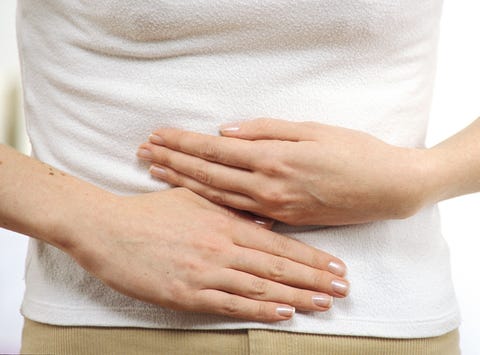Ib Questionbank Mathematics Higher Level 3rd Edition Answers
The effects of irritable bowel syndrome vary across sufferers, especially as there are three main types. IBS usually falls into constipated IBS (IBSc), diarrhoea predominant IBS (IBSd) or mixed IBS (IBSm). Their symptoms all differ and all introduce difficulty into a person's life.
Identifying the type of IBS you have is important for doctors so they can create the correct treatment plan for you. We spoke to Dr Stephen Middleton, consultant gastroenterologist from Spire Cambridge Lea Hospital, about the causes of these conditions, their main symptoms and the best way to treat them.
What is IBS?
Irritable bowel syndrome is an over-sensitivity of the gut causing abdominal pain and altered bowel habits. IBS can affect any part of the gastrointestinal tract but most of the symptoms usually arise from the large intestine. Many foods are not completely digested by the stomach and small intestine, and therefore some residue enters the large bowel where the majority of bacteria reside and break down the food. We call this process fermentation. This produces side products and it is these chemicals that are believed to cause symptoms in patients with irritable bowel syndrome.
MORE: 9 THINGS AN IBS EXPERT WOULD NEVER DO
What are the main symptoms of IBS?
Abdominal pain
Bloating
Flatulence
Altered bowel habits – diarrhoea, constipation or erratic bowel habit
How can IBS affect your mood?
People who suffer with IBS often feel tired and irritable. Stress is the biggest trigger for IBS so it is important to try and avoid stressful situations as it can make the IBS worse. This is easier said than done, especially if IBS is a chronic problem and impairing the quality of life of those suffering with it.
IBS can lead to decreased participation in normal activities, which in turn can make people isolated and conscious of their condition. It is important to seek help before it gets to this stage.

MORE: 14 THINGS YOU'LL KNOW IF YOU HAVE IBS
What are the best treatments for IBS?
Following a careful diet should be the first line of treatment for IBS. This proves successful for around 70% of people.
To begin with, an exclusion diet is used: this can be one of a variety of types, depending on the symptoms experienced. Initially the diet is relatively strict, but once symptoms are under control, foods can be reintroduced to help establish which of them tend to provoke symptoms.
Often, by avoiding a small number of foods, the symptoms can be controlled without unduly restricting the diet long term.
Where there seems to be an intolerance to many foods, it is not wise to use the dietary strategy as it can lead to an inadequate diet. Even if the dietary restrictions seem minor, it is always important to have the diet assessed by a professional dietitian to ensure any ongoing restriction will not affect your long-term health.
The alternative is drug therapy, which is available in two forms:
1) Drugs taken when symptoms occur - many of the symptoms of IBS are caused by spasm of the gut, and anti-spasmodic drugs can be taken when the pain occurs. However, these drugs tend not to work if taken all the time.
2) Drugs taken to prevent symptoms - these can be very effective and tend to give a smooth muscle-relaxing effect.
MORE: 9 WAYS TO HELP EASE IBS

How can you prevent IBS?
In essence, try to avoid the provoking factors and situations. Extreme stress is the biggest cause of IBS in many people – so in addition to avoiding foods that provoke IBS, medication can be taken before a predictable stressful event such as examinations, interviews or performing in public.
When should you see your GP?
If you believe you may be suffering with IBS, discuss it with your doctor to confirm that you have it, rather than another condition that may require a different treatment. Once you have a definite diagnosis of IBS from your doctor, it is a good idea to keep a symptom and food diary.
You may find that a modest alteration in diet will help to reduce your symptoms. If your symptoms flare up or fail to respond to diet, see your GP for additional advice and possibly referral to a dietitian, who can help identify food intolerances and check that you are on an adequate diet.
There are certain symptoms that should prompt further investigation, such as blood in the stool, weight loss and being disturbed from sleep by the symptoms. These should be reported to the doctor as they are not typical of IBS.
MORE: 8 THINGS STOMACH DOCTORS ALWAYS TELL THEIR FRIENDS
Dr Stephen Middleton is a consultant gastroenterologist from Spire Cambridge Lea Hospital.
(All images: Getty)
Like this? Subscribe to the Good Housekeeping newsletter.
This content is created and maintained by a third party, and imported onto this page to help users provide their email addresses. You may be able to find more information about this and similar content at piano.io
Ib Questionbank Mathematics Higher Level 3rd Edition Answers
Source: https://www.goodhousekeeping.com/uk/health/a560249/what-is-ibs-causes-symptoms-diet-treatment/
Posted by: johnsonalitels.blogspot.com

0 Response to "Ib Questionbank Mathematics Higher Level 3rd Edition Answers"
Post a Comment